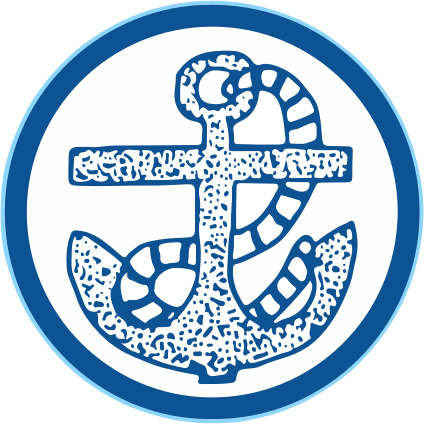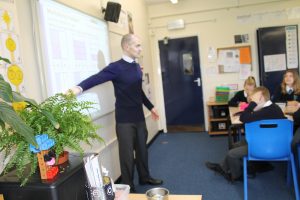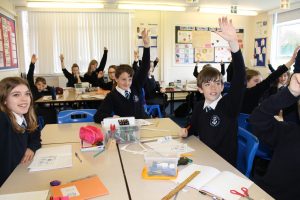‘Mathematics is the extension of common sense by other means.’ Jordan Ellenberg
‘Mathematics is the language with which God wrote the universe’ Galileo Galilei
‘Pure mathematics is, in its way, the poetry of logical ideas.’ Albert Einstein
Mathematics is a creative and highly inter-connected discipline that has been developed over centuries, providing the solution to some of history’s most intriguing problems. It is essential to everyday life, critical to science, technology and engineering, and necessary for financial literacy and most forms of employment. A high-quality mathematics education therefore provides a foundation for understanding the world, the ability to reason mathematically, an appreciation of the beauty and power of mathematics, and a sense of enjoyment and curiosity about the subject.
What does our curriculum aim to achieve?
Foster a love of learning and a healthy curiosity about mathematics
Promote a seamless transition of consistent mathematics through all 3 tiers of school including common schemes of work and assessments
Use a common range of problem solving strategies, manipulatives, diagrams and representations.
Engender clear and precise mathematical language and explanations
Understand the role of mathematicians and their contribution to civilisation
Learn the mathematics specific to a particular career or real life situation
Have high aspirations and expectations for all groups of pupils.
The national curriculum for mathematics aims to ensure that all pupils:
- become fluent in the fundamentals of mathematics, including through varied and frequent practice with increasingly complex problems over time, so that pupils develop conceptual understanding and the ability to recall and apply knowledge rapidly and accurately.
- reason mathematically by following a line of enquiry, conjecturing relationships and generalisations, and developing an argument, justification or proof using mathematical language
- can solve problems by applying their mathematics to a variety of routine and non-routine problems with increasing sophistication, including breaking down problems into a series of simpler steps and persevering in seeking solutions.
Mathematics is an interconnected subject in which pupils need to be able to move fluently between representations of mathematical ideas. The programmes of study are, by necessity, organised into apparently distinct domains, but pupils should make rich connections across mathematical ideas to develop fluency, mathematical reasoning and competence in solving increasingly sophisticated problems. They should also apply their mathematical knowledge to science and other subjects.
The expectation is that the majority of pupils will move through the programmes of study at broadly the same pace. However, decisions about when to progress should always be based on the security of pupils’ understanding and their readiness to progress to the next stage. Pupils who grasp concepts rapidly should be challenged through being offered rich and sophisticated problems before any acceleration through new content. Those who are not sufficiently fluent with earlier material should consolidate their understanding, including through additional practice, before moving on.
A sound grasp of Mathematics is critical to be successful in most careers: engineering, business finance, science based careers, politics, retail, media and current affairs, logistics, law and design among many others. Many problems encountered in the world of work are not solvable any other way. Logic, reasoning and proof form the back bone of many academic careers. World trends in climate, population, health, politics and finance are completely reliant on mathematical models and data handling. Mathematics is also essential in promoting equality in careers.
Curriculum Progression Maps
Mastering the above knowledge and skills would represent the strongest possible way for pupils to access the rationale of the department. They are our ‘Core objectives’ and are deemed as the most crucial elemental areas of maths from which many of the others are derived.
Calculation Policy
Exemplification of NC Objectives
Nearly half of our pupils achieve ‘greater depth’ according to national standards and nearly all achieve the national ‘expected’ standard.
Useful Resources and Links
Below are a selection of useful resources for helping your child with their mathematics:
MyMaths – online homework and lessons
Multiplication Trainer
10 Minutes a Day – free IOS times tables app
Times Tables Challenges – free IOS app
Times Table flash cards
Mathematics Enhancement Programme – KS3 help modules
A4 Squared Paper for maths homework
Help with KS2 SATs
Below are some websites you might find helpful for supporting your child at home during their 2 year run up to the SATs
MyMiniMaths – short focused KS2 SATs practice
MathsFrame – questions on each KS2 NC objective
Corbett Maths – 5-a-day SATs revision
Below are a set of practice materials based on the KS2 2016 Arithmetic paper (Paper 1):
2016 KS2 Content Practice Set A v2
2016 KS2 Content Practice Set B v2
2016 KS2 Content Practice Set C v2
2016 KS2 Content Practice Set D v2
2016 KS2 Practice Arithmetic Set A v2
2016 KS2 Practice Arithmetic Set B v2
2016 KS2 Practice Arithmetic Set C v2
2016 KS2 Practice Arithmetic Set D v2
Instructional Videos
SATs_in_Mins_-_Paper_2__2016_-_Video_Organiser
SATs_in_Mins_-_Paper_3__2016_-_Video_Organiser
KS2 SATs tutorials – exam question help
SATs_in_Mins_-_Paper_2_2017_-_Video_Organiser
SATs_in_Mins_-_Paper_3_2017_-_Video_Organiser
Maths_-_SATs_2017_Question_Buster




